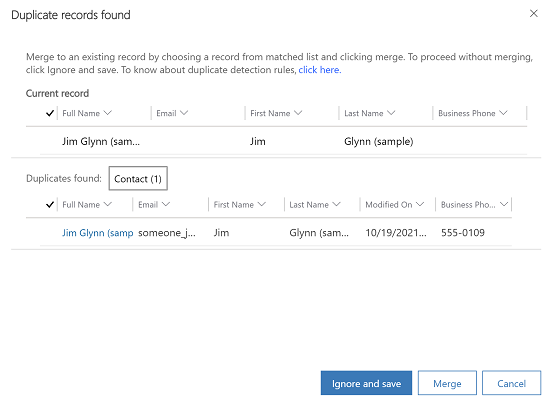d365 marketing: real-world benefits - DATA
A MINI SERIES - The real world benefits
Marketing is vast in it’s definition. It is the individual or team(s) that are responsible for Brand, Promotion, Competitor Strategy, Consumer Messaging, Advertising and more. They are the team that is essentially responsible for determining WHO to target, WHEN to communicate, HOW to get the message across, WHERE the message should be placed, and WHAT that content needs to be. The role, whilst very rewarding and with it’s many perks, comes with its challenges
This mini series of blogs will focus on the real working world benefits that D365 can have on the marketing department and wider business as a whole. Last week i discussed the harsh reality of working in silo and how i believe the marketing department can benefit from sharing the same CRM/Dataverse that CustomerService and Sales use, to allow teams to be more aligned. This blog will discuss the second challenge that the marketing teams face
HARSH REALITY TWO : UNRELIABLE DATA
As i mentioned previously, a marketeer is expected to know everything there is to know about their customer…. yet have very little communication with them on a day to day basis. As such, the marketing department relies on data. They allow the numbers to tell the story and provide meaningful insights which then directs their strategy for the fiscal year. But what happens in a scenario where data is not accurate, or there are many sources of truth?
Here are a few examples from my working career:
I have been the individual that has had to scroll through a spreadsheet to check that there are no spelling errors or data missing from customer address records before it is then used for a mail out. Most tedious yet necessary task that i have had to do. But let’s face it this could have been preventable!
I have been the individual that has spent hours putting together launch pack for them to only come back with big red letters R.T.S (Return to Sender) scribbled across because the address has been wrong or the customer has moved. Out of date data is frustrating because each pack cost so much, and you would be surprised by the small budget that a marketing department has. It cannot be re-used because of the RTS scribbled across or the damage that has been made in delivery process. But the same can apply to a mail out too. Each R.T.S letter is money down the drain, and it all adds up.
And then finally, the task that we all dread is the data cleansing aspect. I myself have sat their and rang numerous customers in the U to check that ther address and contact information is all up to date. Whilst necessary, was this the best use of my time? Probably not. I lost out on thinking about the strategy because i had to spend hours and hours data cleansing…. I lost days. In this particular instance it was unrealistic to ask Customer Service to check at the end of their phone calls. They have their own KPI to focus on, without worrying about marketing data on top.
The other aspect to Marketing Individuals and their frustration around data is duplicate data. If you are sending a mail out of 6000+ letters, emails, leaflets (whatever it may be) in a massive spreadsheet it is hard to spot the duplicates. It may be that you have Kelly Simpson and a Kelly-Marie Simpson in the data. it is an easy oversight to make when you have so many records of data to keep on top of.
HOW CAN D365 MARKETING HELPS WITH UNRELIABLE DATA?
As touched on in my previous post, the first benefit is ONE SOURCE OF TRUTH. Rather than Marketing Teams using a different CRM system to manage email communications or mail outs, D365 Marketing allows marketeers to leverage dataverse, and use the data that all other departments are working from when it comes to their contact or lead records.
Marketeers can be more confident when creating their segments that they will have the most up to date contact list and that their email or address information will most likely be correct. After all, it is the information that Sales and Customer Service are using on a daily basis. For that added second layer of reassurance, as part of segment creation Marketing are able to exclude contacts where certain data attributes are null and do not contain data. More time can be spent on the task at hand rather than worrying about the data being accurate.
Furthermore, not only are Marketing Individuals able to benefit from having the most up to date Marketing Preference information (which I will cover in a future blog post as part of this mini series), the marketing team can also benefit from the Subscription Centre. A Subscription Centre is a marketing page that known contacts (Not New Contacts) can use to manage their communication preferences and contact details with your organisation. The beauty of this is that contacts are able to update their own information, should any of their details change, and this updates the information held in Dynamics. Again, this allows time to be better spent on strategy rather than the time consuming task of data cleansing
Microsoft D365 Marketing Subscription Centre form builder
In addition, Marketing Teams can also benefit from Duplicate Detection Rules that D365 has to offer as a whole. Customer engagement apps (such as Dynamics 365 Sales and Dynamics 365 Customer Service) include default duplicate detection rules for accounts and contacts that Marketing can benefit from. Microsoft recommend that you set the duplicate detection criteria on a field that has unique values, for example, Email. If there are two contacts with the same email and first name, this would flag as a duplicate, and the records can be merged together.
Duplicate Detection Example ; providing the ability to merge the record

